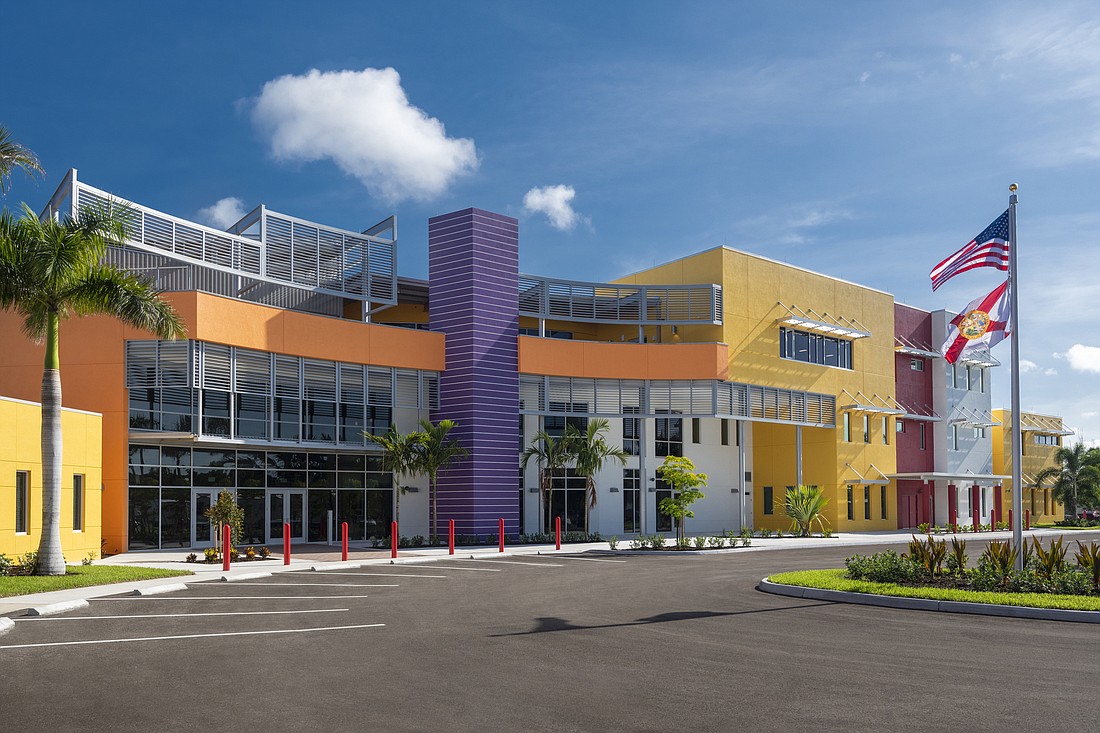- April 5, 2025
-
-
Loading

Loading

Project: The Heights Early Learning & Education Center
Location: 15570 Hagie Drive, Fort Myers
Date: Groundbreaking was September, 2019. Completed in early August
Cost: $10.12 million
Size: 36,000 square feet, three stories
Builder: Owen-Ames-Kimball; job superintendent: Ryan Propp
Architect: Javier Salazar, RG Architects Inc.
Project details: Building is the latest addition to the Heights Foundation/Heights Center campus, a nonprofit that helps to build strong, self-sufficient families in the Harlem Heights neighborhood in Fort Myers. Complex will serve children from birth to age 5, and the Harlem Heights Community Charter School, an elementary school with grades K-5.
“The biggest thing was that the building had to feel uplifting,” Salazar says. “This campus serves people with serious economic needs, so that was a big part.”
In addition to classroom space, the colorful building has a large multipurpose room that can serve meals for 180 students. The building has music and art labs designed with access to an outdoor roof terrace to encourage arts exploration and interaction with the environment. The terrace will also be home to aquaponics and hydroponics gardens. An outdoor play pavilion is included as part of the design for PE activities. All classrooms have been designed with natural light, flexibility and technology upgrades in mind.
Cool factor: The roof/terrace is made with wood paver materials from Brazil. “It’s a gorgeous outdoor area,” Propp says. “You will not find a school as beautiful as this. You just don’t see wood pavers on a roof like that.”
Propp highlights other cool parts, such as steel stairways and the building’s inviting and visually appealing lobby and entranceway. On the latter, Salazar agrees that part is cool — but also practical. “We didn’t want to do something fancy,” Salazar says, “without it being functional.”
Keeping the building’s function as a school at the forefront, Salazar adds that his strategy to get a cool design was to be “spontaneous and organic.”
Challenges: The time frame, 11 months from groundbreaking to completion, combined with the pandemic made things more challenging than a normal fast-paced project, Propp says. And the yearslong labor shortage in construction only exacerbated the situation.
Although no employee on the job site ever came down with COVID-19, several were sent home for not feeling well. Overcoming all the labor issues, Propp says, required lots of advanced planning and communication, in addition to outside forces. “We had really great subcontractors on this on the job,” Propp says. “The subs really stepped up.”
Another issue was the slow supply chain in a range of areas. The air conditioning unit on the roof, for instance, came three months late. “That was a really big hurdle,” Propp says.